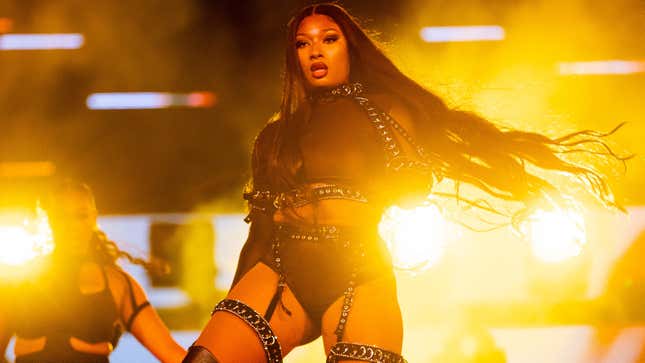Megan Thee Stallion on Black Women: 'We Deserve to Be Protected… and We Are Entitled to Our Anger'
CelebritiesNews

When rapper Megan Thee Stallion was allegedly shot by Tory Lanez earlier this summer, the initial response from celebrities like Chrissy Teigen and 50 Cent was to joke about her injuries, using Megan’s “confident expressions of her sexuality as justification to trivialize the seriousness of her being shot,” as Justice Namaste wrote for this site. It’s a tale as old as time: Black women’s experience of violence is rendered unavoidable, mundane—she was questioned, then disbelieved, and then mocked.
A few months later, when Megan took the stage at Saturday Night Live, she used her performance as an opportunity to highlight the injustice of the Breonna Taylor decision, standing beneath a backdrop that read, “PROTECT BLACK WOMEN.” She also aired audio from a familiar 1962 Malcolm X speech, in which he said, “The most disrespected, unprotected, neglected person in America is the Black woman.” It was a powerful performance, and misunderstood by those who didn’t want to hear her. Now, in a new op-ed for The New York Times, Megan has made her stance clear once again: “I’m not afraid of criticism. We live in a country where we have the freedom to criticize elected officials. And it’s ridiculous that some people think the simple phrase ‘Protect Black women’ is controversial,” she wrote. “We deserve to be protected as human beings. And we are entitled to our anger about a laundry list of mistreatment and neglect that we suffer.”
-

-

-

-

-

-

-

-

-

-

-

-

-

-

-

-

-

-

-

-

-

-

-

-

-

-

-

-

-

-

-

-

-

-

-

-

-

-

-

-








































